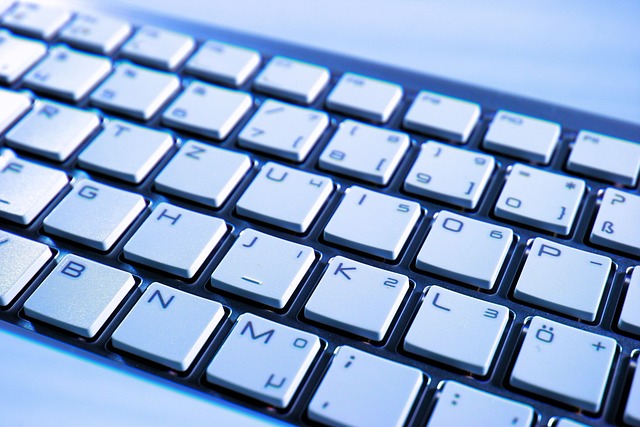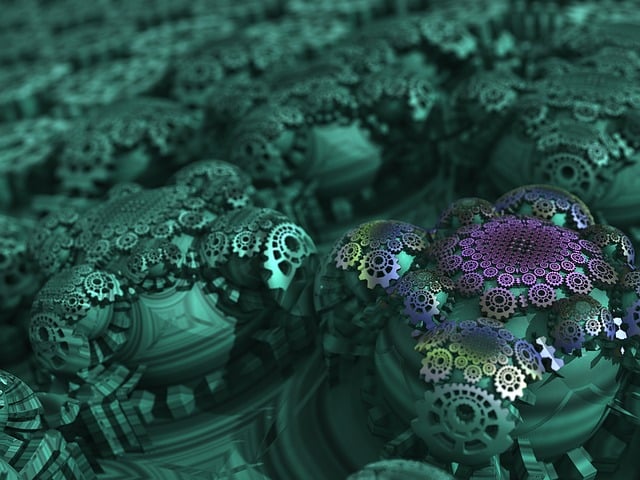AI Ethics Committees: Ensuring Responsible AI Development


Artificial Intelligence (AI) has become an integral part of our lives, from voice assistants on our smartphones to self-driving cars. While AI offers tremendous benefits and potential, it also raises important ethical considerations. To address these concerns, AI ethics committees have emerged as key players in ensuring responsible AI development.
So, what exactly are AI ethics committees? Think of them as guardians of AI, overseeing its development and deployment with a critical eye towards ethical implications. These committees consist of experts from various fields such as technology, law, philosophy, and social sciences. Their primary goal is to establish guidelines and regulations that govern the ethical use of AI.
One crucial aspect that AI ethics committees focus on is bias. AI systems are only as good as the data they are trained on, and if that data contains biases, the AI system will perpetuate and amplify those biases. Ethics committees work to ensure that AI algorithms are fair, transparent, and free from discriminatory biases. They strive for inclusivity and diversity, recognizing the importance of representation in AI systems.
Another key area of concern is privacy. AI often deals with vast amounts of personal data, raising questions about how that data is collected, stored, and used. AI ethics committees advocate for robust privacy measures and consent frameworks to protect individuals’ rights and ensure responsible data handling practices.
Additionally, AI ethics committees address the issue of accountability. When AI systems make decisions that impact people’s lives, it is essential to have mechanisms in place to assign responsibility. These committees promote transparency and accountability in AI development by encouraging companies and organizations to document and explain their AI models and decision-making processes.
The work of AI ethics committees goes beyond setting guidelines. They actively engage with policymakers, industry leaders, and the public to raise awareness about AI ethics and foster a collaborative approach. By involving multiple stakeholders, these committees create a space for dialogue, debate, and collective decision-making, ensuring that AI development aligns with societal values.

AI ethics committees play a vital role in ensuring responsible AI development. By addressing biases, safeguarding privacy, promoting accountability, and fostering collaboration, they help shape the future of AI in a way that benefits humanity while minimizing potential harm. As AI continues to advance, the work of these committees becomes increasingly important in navigating the ethical challenges and maximizing the positive impact of AI on our society.

Artificial Intelligence (AI) has become an integral part of our lives, transforming various industries and offering unprecedented opportunities. However, as AI continues to advance at a rapid pace, concerns regarding its ethical implications have surfaced. To ensure responsible AI development, the establishment of AI ethics committees has emerged as a crucial step.
But what exactly are AI ethics committees? These committees consist of experts from diverse backgrounds, including technologists, ethicists, policymakers, and representatives from different stakeholders. Their primary goal is to address the ethical challenges associated with AI and guide its development in an ethically sound manner.
These committees play a pivotal role in navigating the moral maze that surrounds AI. By setting guidelines and standards, they provide a framework for developers and organizations to follow. Moreover, they evaluate the potential risks and benefits of AI applications, considering factors such as privacy, bias, transparency, and accountability.
One of the key responsibilities of AI ethics committees is to ensure fairness in AI systems. As AI algorithms learn from vast amounts of data, there is a risk of perpetuating biases present in the training data. Ethics committees work towards mitigating these biases and promoting fairness in AI decision-making processes. They strive to prevent discrimination based on race, gender, or any other protected attributes.
Transparency and accountability are also crucial aspects addressed by these committees. AI technologies often operate as black boxes, making it challenging to understand how decisions are made. Ethics committees advocate for transparency, requiring developers to provide explanations for AI-driven outcomes. This fosters trust between users and AI systems while enabling individuals to question and challenge biased or unfair results.
Furthermore, AI ethics committees consider the broader societal impact of AI. They assess possible consequences on employment, human rights, and social equality. By evaluating these implications, they propose policies and regulations to safeguard against harmful effects and ensure AI benefits all members of society.
AI ethics committees are essential for responsible AI development. They provide guidance, set standards, and address ethical challenges associated with AI. By promoting fairness, transparency, and accountability, these committees pave the way for an AI-driven future that is aligned with our moral values. As AI continues to evolve, the role of ethics committees will remain critical in steering its development on a path that benefits humanity as a whole.
Guardians of the Algorithm: How AI Ethics Committees Shape Ethical AI Practices
In the ever-evolving landscape of artificial intelligence (AI), ethical concerns have taken center stage. As AI systems become more sophisticated and integrated into our daily lives, questions arise about their impact on privacy, fairness, and human values. To address these concerns, organizations are turning to AI ethics committees as the guardians of the algorithm, ensuring ethical AI practices.
But what exactly do these committees do? Well, imagine them as the gatekeepers of AI, dedicated to upholding ethical standards. They play a crucial role in shaping the development, deployment, and use of AI technologies. Serving as an independent body, they scrutinize AI systems, policies, and algorithms to ensure alignment with ethical principles.
AI ethics committees consist of diverse experts from various fields, including computer science, philosophy, law, and social sciences. This multidisciplinary approach ensures a comprehensive examination of AI’s ethical implications. By bringing together diverse perspectives, these committees foster a holistic understanding of the potential risks and benefits associated with AI.
One of the primary tasks of these committees is to establish guidelines and frameworks for responsible AI development. They work hand in hand with developers and policymakers to design AI systems that prioritize transparency, accountability, and fairness. By setting standards, they help prevent biases and discrimination embedded within algorithms, safeguarding against unintended consequences.
Additionally, AI ethics committees serve as a platform for public engagement. They actively seek input from various stakeholders, including experts, industry representatives, and civil society organizations. Through public consultations and deliberations, they ensure that AI technologies incorporate societal values and address public concerns. In doing so, they promote a more democratic and inclusive approach to AI governance.

Moreover, these committees monitor the implementation of AI systems to detect any potential ethical issues or unforeseen consequences. They conduct audits and assessments to evaluate the impact of AI on individuals and communities. If an AI system is found to be in violation of ethical principles, these committees recommend corrective actions or even halt its deployment until the issues are resolved.
Balancing Innovation and Accountability: The Role of AI Ethics Committees in Promoting Responsible Technology
In today’s fast-paced technological landscape, where innovation seems to know no bounds, striking a delicate balance between progress and accountability has become more important than ever. Enter the realm of AI ethics committees – the guardians of responsible technology. These committees play a vital role in ensuring that artificial intelligence (AI) systems are developed and deployed with ethical considerations at their core.
But what exactly is the purpose of these committees? Well, imagine them as a group of wise stewards entrusted with overseeing the development, deployment, and impact of AI technologies. Their mission? To navigate the uncharted waters of emerging technologies while keeping a keen eye on potential risks and societal implications.
AI ethics committees serve as a bridge between innovators and society, acting as catalysts for responsible technological advancements. They bring together experts from various fields such as computer science, philosophy, law, and social sciences, fostering interdisciplinary conversations that shape the ethical frameworks surrounding AI.
By analyzing and evaluating the potential risks and benefits of AI applications, these committees help create guidelines and policies that promote accountability and transparency. They ask crucial questions like: How can we ensure fairness and prevent bias in AI algorithms? What safeguards should be put in place to protect user privacy? How do we address the ethical dilemmas posed by autonomous systems?

One of the key strengths of AI ethics committees lies in their ability to engage stakeholders from diverse backgrounds. They facilitate inclusive discussions that consider different perspectives, allowing for a holistic approach to ethical decision-making. This ensures that the interests and values of all stakeholders, including individuals and communities affected by AI technologies, are taken into account.
Just as a compass guides a ship through rough seas, AI ethics committees provide guidance and direction to technology developers and policymakers. They promote a culture of introspection and continuous improvement within the AI community, driving the creation of responsible and beneficial technologies that align with societal values.
In summary, AI ethics committees stand as beacons of light in the vast realm of technological innovation. They play a critical role in fostering responsible technology by balancing the pursuit of progress with accountability. By bringing together experts, facilitating discussions, and shaping ethical frameworks, these committees pave the way for a future where AI benefits humanity while avoiding potential pitfalls.
AI’s Moral Compass: How Ethics Committees Safeguard Against Unintended Consequences
With the rapid advancements in artificial intelligence (AI) technology, it has become increasingly important to establish a moral compass for AI systems. As AI becomes more integrated into various aspects of our lives, it is crucial to ensure that these intelligent systems are developed and deployed in an ethical manner. This is where ethics committees play a vital role in safeguarding against unintended consequences.
But what exactly is the role of ethics committees when it comes to AI? These committees consist of experts from diverse fields such as computer science, philosophy, law, and sociology, who come together to analyze and evaluate the ethical implications of AI technologies. Their primary objective is to create guidelines and frameworks that promote responsible AI development and deployment.
One of the key functions of ethics committees is to address the potential biases present in AI algorithms. AI systems learn from vast amounts of data, and if this data contains biases, the AI can inadvertently perpetuate and amplify them. Ethics committees work towards mitigating these biases by promoting transparency and fairness in AI decision-making processes. They scrutinize the datasets used to train AI models, ensuring they are diverse, representative, and free from discriminatory patterns.
Moreover, ethics committees also focus on issues related to privacy and security. AI systems often require access to personal data to function effectively, raising concerns about data protection and privacy breaches. Ethics committees establish guidelines for handling sensitive information, emphasizing the importance of informed consent, anonymization, and secure storage of data. By doing so, they aim to ensure that individuals’ rights and privacy are respected in the development and deployment of AI technologies.
Another critical aspect that ethics committees address is the accountability of AI systems. When AI makes decisions that impact human lives, it is essential to determine who should be held responsible for any harm caused. Ethics committees advocate for clear lines of accountability, urging developers and organizations to take responsibility for the actions and consequences of their AI systems. This fosters a culture of responsibility and ensures that AI is not deployed without due diligence.
Ethics committees play a crucial role in shaping AI’s moral compass and safeguarding against unintended consequences. By addressing biases, promoting transparency, ensuring privacy, and emphasizing accountability, these committees pave the way for responsible AI development and deployment. As AI continues to evolve, it is imperative that we have such committees in place to guide its ethical implementation and ensure that it serves humanity’s best interests.




